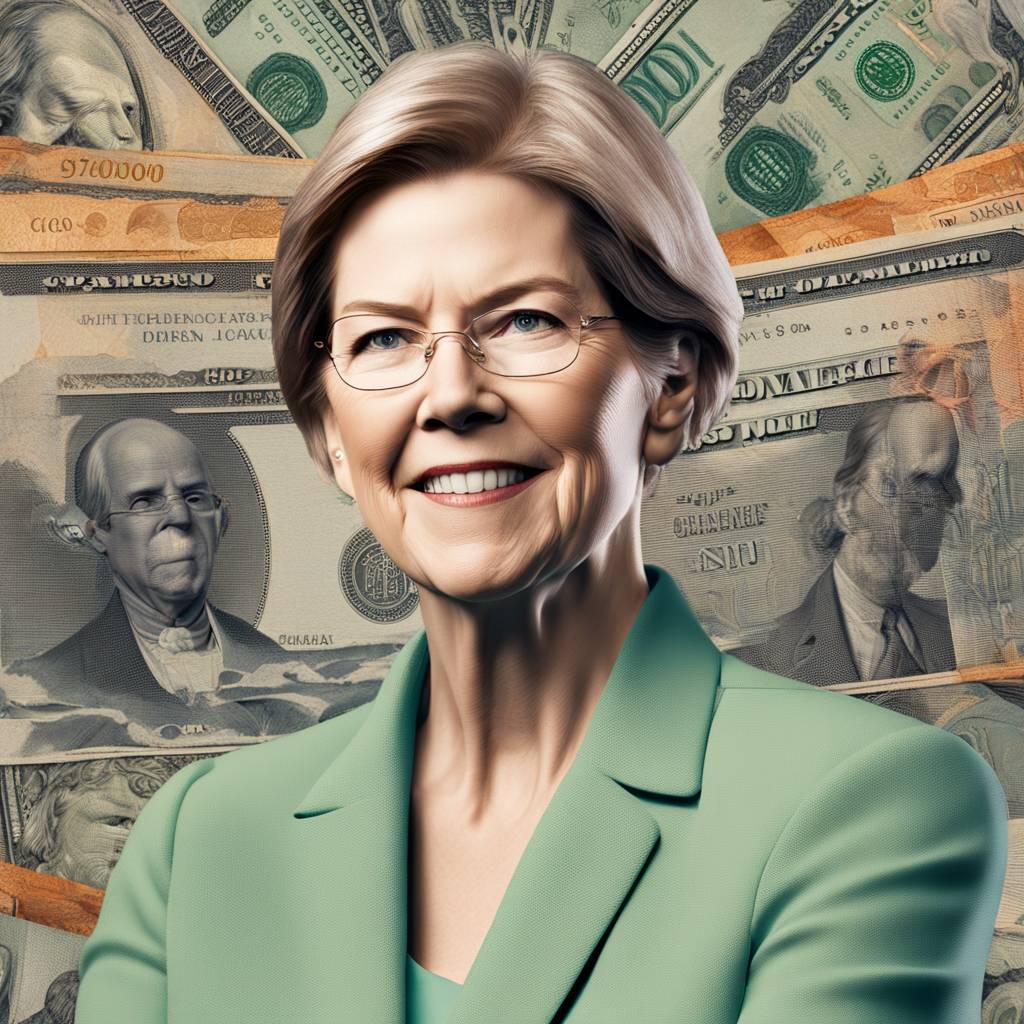Senator Elizabeth Warren has criticized the push for a stablecoin bill without anti-money laundering laws in place, citing national security concerns. In a letter to House Financial Service Committee Chairman Patrick McHenry and Ranking Member Maxine Waters, Warren argued that creating new regulatory frameworks for stablecoins could amplify and entrench the risks they pose to the American banking sector. She believes that stablecoins pose a threat to consumers and the banking system at large, leading to payment system destabilization and national security risks. Warren is pushing for the passage of the DAAMLA bill to ensure strong rules that ensure safety and soundness in the integration of stablecoins into the formal banking system.
The news of Warren’s letter follows McHenry’s yet-to-be-passed “Clarity for Payment Stablecoins Act,” which would see increased regulation on stablecoin cryptocurrencies, similar to traditional financial institutions. During a Senate hearing entitled “An Update from the Treasury Department: Countering Illicit Finance, Terrorism and Sanctions Evasion,” Warren emphasized the need for the right anti-money laundering laws in place in order to advance stablecoin regulation efforts. She highlighted the importance of implementing a regulatory framework to prevent illicit financial activities by entities such as Iran, terrorists, drug lords, and human traffickers from exploiting the system to make money. Warren has long been a staunch anti-crypto advocate and has drafted the controversial DAAMLA bill in 2022 to impose stringent oversight rules on key players in the crypto industry.
Circle CEO, Jeremy Allaire, a longtime advocate for stablecoin legislation, believes there is a good chance that stablecoin legislation will get passed in 2024. During an interview with CNBC, Allaire expressed optimism about the momentum and the likelihood of seeing stablecoin legislation become law. Warren’s letter to Waters and McHenry reflects her unwavering determination to regulate crypto, but the extent of lawmaker consensus on stablecoin regulation is yet to be determined. The push for stablecoin regulation comes amid concerns about the risks posed by stablecoins to the American banking sector and national security, leading to calls for increased oversight and anti-money laundering laws to mitigate these risks.
Warren’s concerns about stablecoins stem from the potential threat they pose to consumers and the stability of the banking system. She argues that integrating stablecoins into the formal banking system without strong rules could result in payment system destabilization and create opportunities for illicit financial activities. Warren’s advocacy for the DAAMLA bill underscores the need for comprehensive regulatory frameworks to ensure the safety and soundness of stablecoin transactions. As Congress returns and crypto regulation becomes a key focus, the debate over stablecoin regulation continues to escalate, with Warren leading the charge for greater oversight and anti-money laundering measures in the industry.
The ongoing push for stablecoin regulation highlights the complexities and challenges of integrating digital currencies into the traditional financial system. Warren’s critique of the stablecoin bill without anti-money laundering laws emphasizes the importance of addressing national security risks associated with cryptocurrencies. As the debate over stablecoin regulation unfolds, the role of lawmakers in shaping the regulatory landscape for cryptocurrencies will be crucial in determining how digital assets are integrated into the formal banking system. Warren’s call for stronger anti-money laundering laws and regulatory oversight reflects a broader effort to address the potential risks and vulnerabilities posed by stablecoins in the financial sector.


